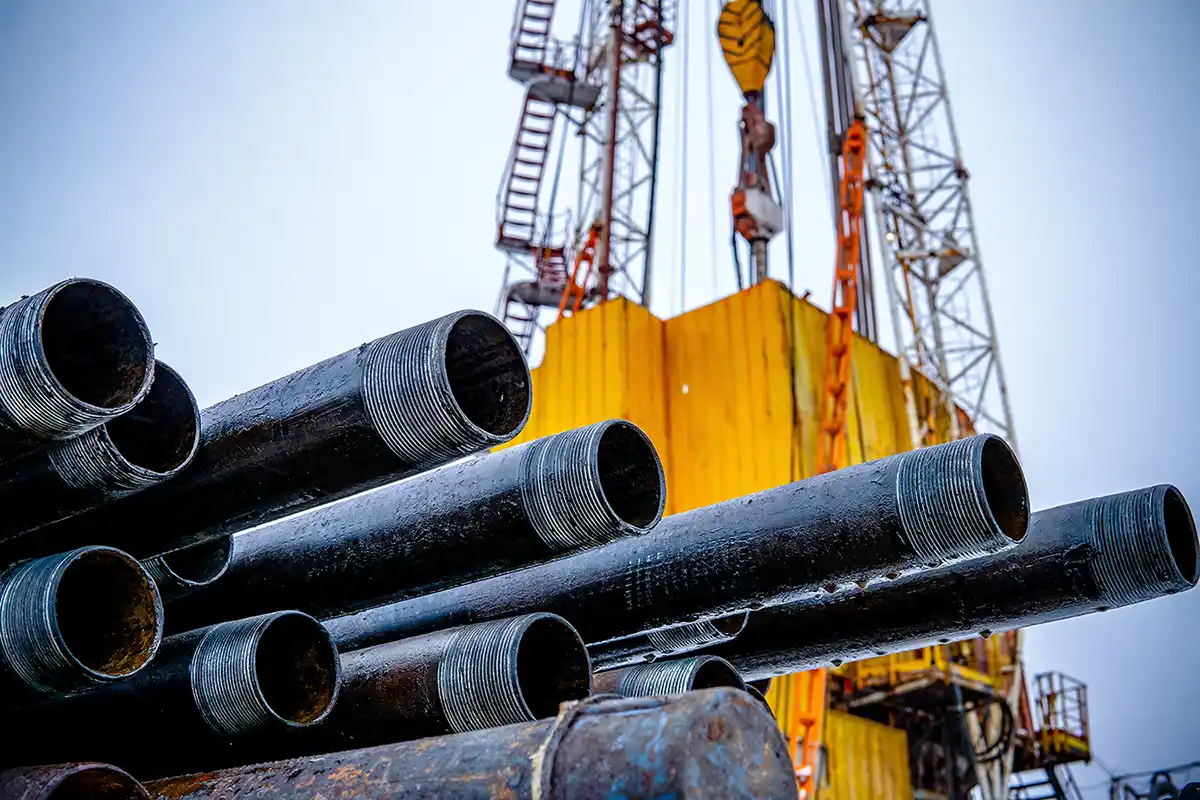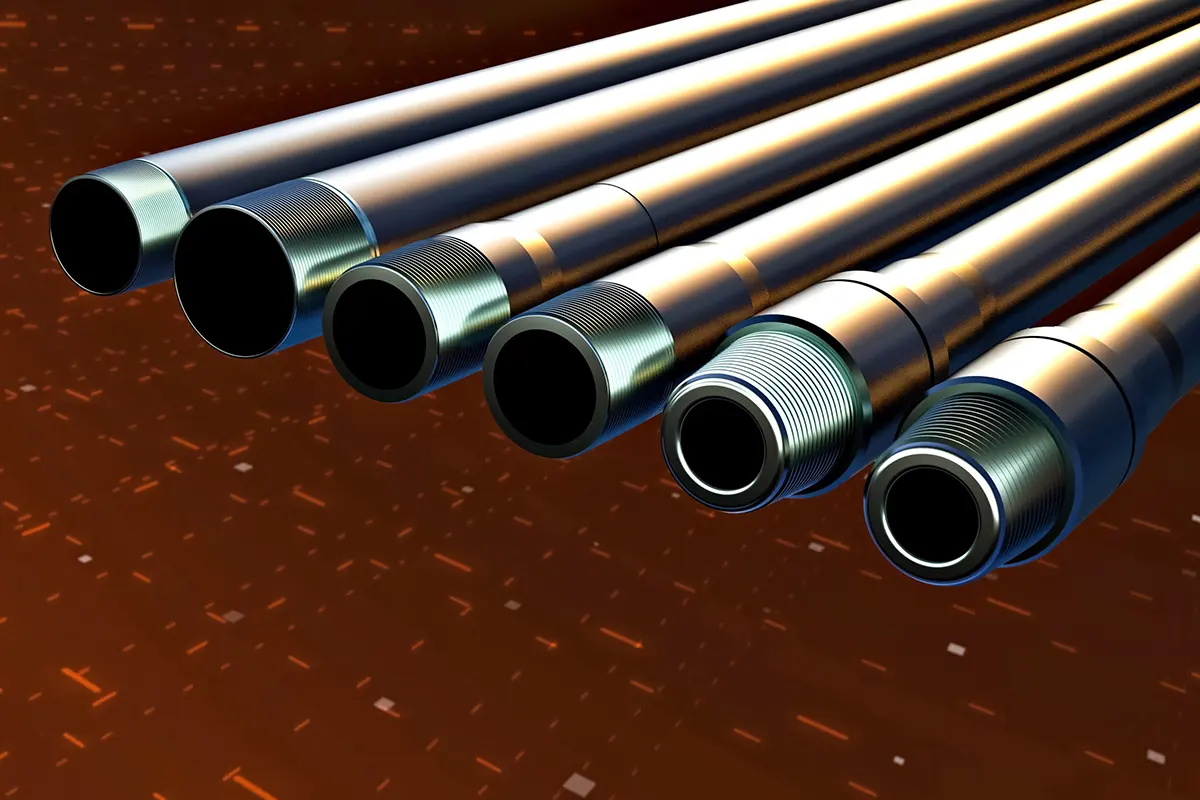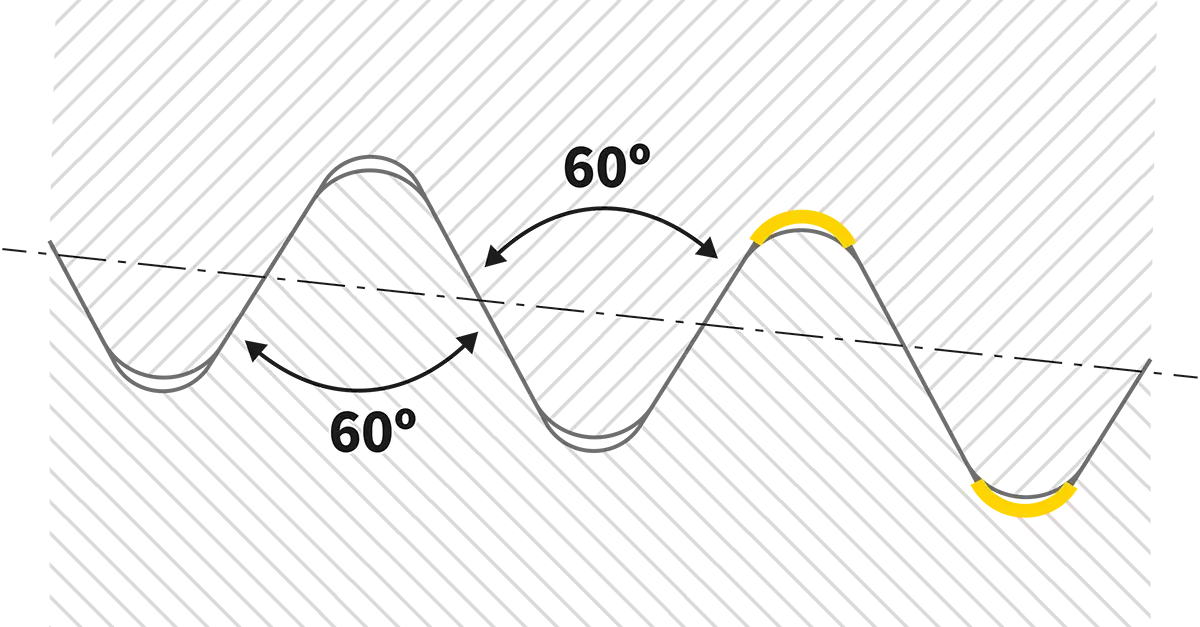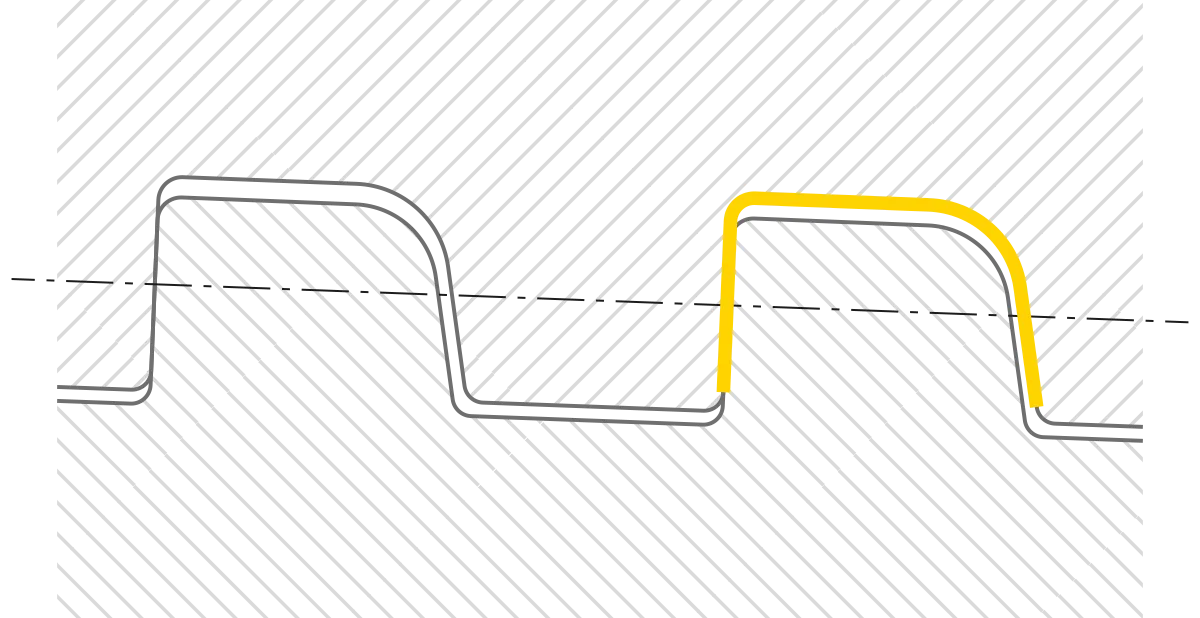
The thread standards of the American Petroleum Institute (API)
You might think that with the many thread types that exist in the world, there really should be something for every application. And yet there are still cases where companies or organizations develop their own standards to cover very specialized conditions. These include the American Petroleum Institute's thread standards.
Admittedly, if you are not reading this during your lunch break on the oil platform, then you are unlikely to come across the API thread unexpectedly any time soon. But that's no reason to simply ignore this special thread! The API thread is a good example of when the usual catalog of thread standards reaches its limits and needs to be supplemented with tailor-made threads - and how this is done.
So let's take a closer look at API threads and see what makes them so special.
Why the American Petroleum Institute has developed its own thread standards
The first question is, of course, why API threads exist at all. To find out, let's first clarify what the American Petroleum Institute is and in which area the API threads are used.
What is the American Petroleum Institute?
The American Petroleum Institute is an interest group comprising more than 600 companies from the oil and gas industry in the USA, which is still often referred to as the petroleum industry, hence the name. The Institute not only lobbies, but also conducts its own research and advises on all issues relating to the extraction, refining and distribution of crude oil and petroleum products. And this broad field of activity includes the development and publication of various standards, including API threads.

Special requirements for threads in the oil and gas industry
Threaded connections in the oil industry are exposed to high loads. In addition, it can be really expensive if such a connection fails. Not only does a leak mean high losses. The joints of the pipes are often hundreds of meters below the surface of the earth or below sea level, which makes a quick repair almost impossible. The best option is therefore to rule out the failure of a bolted joint as far as possible. To this end, the API has developed the extremely strict API thread standards, which are designed to ensure that the pipes are not weakened by inadequate threaded connections at such sensitive joints.

What is special about the API threads?
The API threads are specially adapted to the different types of pipes used in the oil industry. There are special API threads for the casing pipes that are used to support the walls of an oil well and prevent collapse. And there are also specially designed API threads for the various types of pipe used in oil production and transportation, which are perfectly adapted to the respective application. API threads are therefore highly specialized and serve a very specific purpose.

What API threads are there?
API standard 5B describes several different thread types, which are all based on known thread profiles, but have been adapted in detail for very specific applications.

API Round Thread Casing and Tubing
This API thread is a round thread that is used both for casing pipes and for pipes in production. The API round thread is defined in two different lengths, one as a Short Round Thread (STC) and one as a Long Round Thread (LTC). The LTC thread is used for axial loads and especially when there are no high temperatures or extreme pressure in the borehole. In more extreme conditions without axial load, however, the STC round thread is the better choice.
Due to its round profile, the API round thread is particularly suitable for demanding applications. Despite its positive properties, it is easy and inexpensive to produce and is resistant to dirt. Mechanical damage such as scratches or dents also occur less frequently with the API round thread. And if it does become necessary, the API round thread is also easy to clean and maintain.

API buttress thread casing
This API thread is a saw thread that can withstand high tensile and compressive loads. It is mainly used when a very good hydraulic seal is required. The API saw thread has been optimized and equipped with particularly tight tolerances to guarantee a very tight fit. This means that there are no gaps in the thread through which fluid could escape, resulting in an excellent seal.

API Line Pipe thread
Finally, the API thread standard 5B also includes the dimensions for a pointed thread. The API Line Pipe thread is mainly used for line pipe. It is a conical pipe thread with a 60° flank angle.

You may not need the API thread in your daily work, but you certainly need other types of thread. And you shouldn't miss our online store. Take a look and stock up on threading tools and accessories for all your projects and applications. And our customer service is always on hand if you have any problems or questions.
